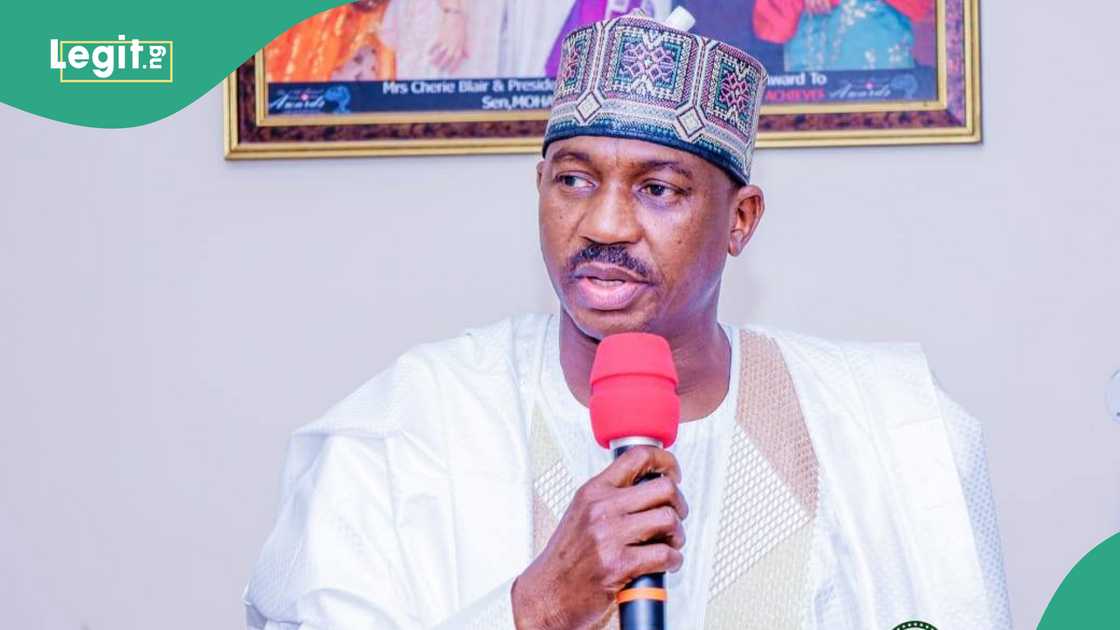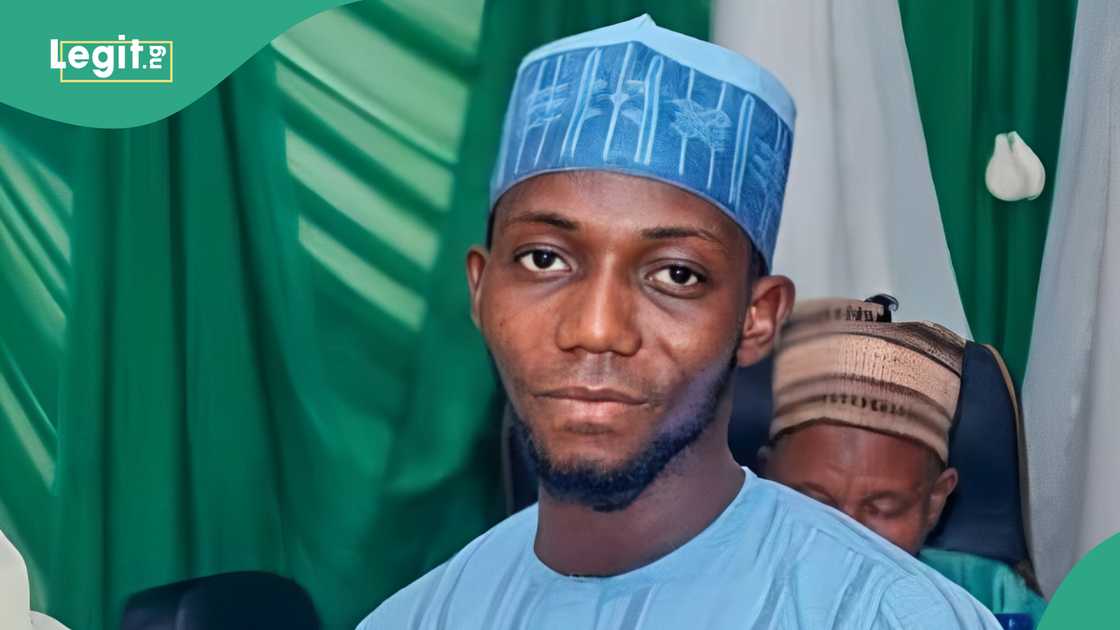In a remarkable display of support for academic achievement, Governor Ahmed Aliyu of Sokoto State has announced a fully sponsored trip to Saudi Arabia for the 2026 Hajj exercise for Sherif Abdullahi, the top graduating student of Usmanu Danfodiyo University, Sokoto (UDUS). The governor made this statement on Saturday, September 6, during the university’s 42nd convocation, which took place at the institution’s main campus, drawing praise from educational stakeholders and the local community alike.
According to reporting from The Punch, Governor Aliyu, himself an alumnus of UDUS, highlighted that the gesture was a direct recognition of Abdullahi’s consistent dedication and brilliance. Abdullahi, a graduate of Microbiology, achieved a remarkable Cumulative Grade Point Average (CGPA) of 4.92. The governor described this academic record as “one of the highest” in the school’s recent history, reflecting the highest standards of excellence promoted within the institution.
Sherif Abdullahi’s accomplishment stands as a beacon for other young Nigerians, demonstrating that hard work and focus can lead to both local and international recognition. Many students and families at the event expressed pride and optimism, hoping such acknowledgement would inspire further educational pursuits throughout the region.
“This university has profoundly impacted lives both within Nigeria and beyond Africa.
“Its contributions to national and international development cannot be overestimated, and today’s graduates should be proud to be part of that legacy,” Governor Aliyu said.

Photo credit: Office of Chief of Staff to the Governor Sokoto State
Source: Facebook
Sokoto governor hails Tinubu’s efforts in education
Governor Aliyu took the opportunity to commend President Bola Tinubu for ongoing advancements in the education sector, acknowledging the synergy between state and federal government initiatives. Speaking to the gathering, Aliyu outlined major investments and reforms made in Sokoto State since assuming office. These included the settlement of N1.845 billion in outstanding tuition fees for Sokoto medical students both within Nigeria and abroad, the strategic appointment of four professors from UDUS to lead key educational commissions in the state, and a robust overhaul of primary, secondary, and tertiary educational facilities.
Local observers, including education-focused NGOs and student groups, have hailed these measures. “It is vital for our young people to see tangible commitments from leaders,” stated Musa Mohammed, a Sokoto-based education analyst. “Such actions not only address immediate financial challenges but foster a culture of academic aspiration and excellence.”
“The Tinubu administration’s commitment to revitalising public universities has already begun to yield positive results.
“From improved funding frameworks to policy reforms aimed at enhancing academic quality and institutional autonomy, this dispensation is laying a stronger foundation for sustainable growth in higher education,” he added.
FG rewards teen for English contest victory
In a separate but related development, national authorities have also recognised the extraordinary achievements of Nigerian youth on the global stage. Nafisa Abdullah, a teenager from Yobe State who emerged as the world’s best in a competitive English Language contest, was honoured by the federal government with a cash prize of N200,000, as covered by national news outlets. The award was presented by the Minister of Education, Dr. Tunji Alausa, at a formal ceremony in Abuja on August 28, 2024.
This recognition was widely praised by communities in Yobe and beyond, serving as a source of encouragement. According to one of Nafisa’s school teachers, “seeing a young Nigerian girl reach such heights in English on a world stage motivates many of her peers to dream bigger.” These stories reinforce the importance of supporting female education and bridging regional divides in learning outcomes, with initiatives now emerging to provide scholarships and competitions, particularly for girls in northern Nigeria.
Boy wins scholarship worth N24 million
Academic excellence is not limited to the tertiary level. Across Nigeria, there has been a surge in recognition and support for outstanding secondary school students as well. One notable example is Agu Chijindu, who was celebrated online after winning the Evergreen Schools Enugu Annual Mathematics Olympiad Competition. Chijindu’s triumph earned him a N24 million scholarship, according to education activist Alex Onyia, who shared the development on X (formerly Twitter).
Parents, educators, and social commentators have applauded Chijindu’s accomplishment. Discussions in online forums and local study groups have highlighted the importance of investing in STEM (science, technology, engineering, and mathematics) education at the grassroots. As summarized by Lagos-based mathematics coach, Ifeoma Okafor: “Competitions like these encourage not just the winners but their entire communities to value and invest in learning.” Beyond individual recognition, such stories can shift community attitudes towards continuous learning and merit-based reward.
Man set to study abroad under scholarship
Emphasizing the global reach of Nigerian educational achievement, a growing number of university graduates are securing scholarships to pursue higher degrees outside Africa. One such case is that of Chizoba Victor Ejiofor, a graduate of the University of Nigeria, Nsukka (UNN), who recently obtained a visa to further his studies in the United Kingdom. According to education advocate Alex Onyia, Ejiofor was awarded a scholarship worth £33,000 (over N68 million), allowing him to pursue advanced postgraduate education abroad.
This development, widely discussed among prospective postgraduates on platforms like LinkedIn and local alumni networks, has sparked conversations about the benefits and challenges of studying abroad. While scholarships offer a chance for world-class education, some experts note concerns of brain drain and call for expanded in-country research opportunities. Dr. Adebayo Ogunleye, an education policy scholar, opined: “Nigeria must balance sending its brightest abroad with creating conditions at home that foster research, innovation, and professional growth.”
For West African nations, cultivating a new generation of scholars and innovators is vital for long-term social and economic development. According to UNESCO, sub-Saharan Africa still trails global averages for tertiary enrollment, with less than 10% of the relevant age group in higher education as of 2022. Scholarships, recognition, and official support—highlighted in these recent Nigerian examples—are key mechanisms for closing this gap and nurturing talent at every level of society.
While the achievements of Abdullahi, Chijindu, Nafisa, and Ejiofor stand out, education activists caution that systemic barriers such as funding, infrastructural deficits, and regional disparities must be addressed. Nevertheless, every success story serves as a reminder of what is possible when communities, governments, and private sector partners unite behind the shared goal of educational advancement.
What are your thoughts on the recent wave of educational achievements in Nigeria? How can the government and society sustain and deepen these successes across all regions and disciplines? Drop your opinion in the comments section and follow us for in-depth updates on Nigerian, West African, and African education stories.










